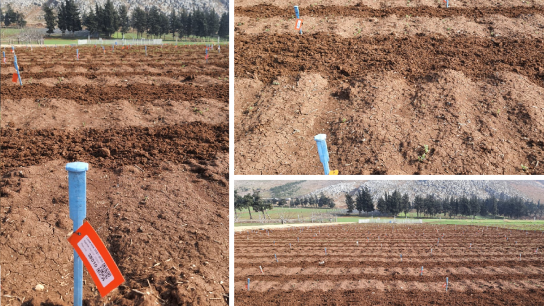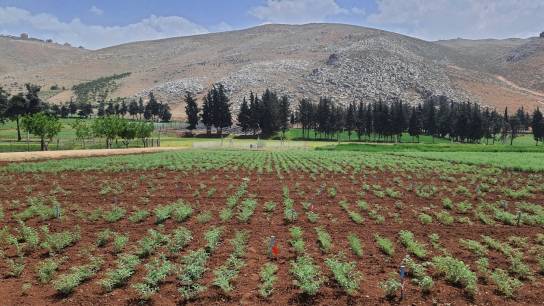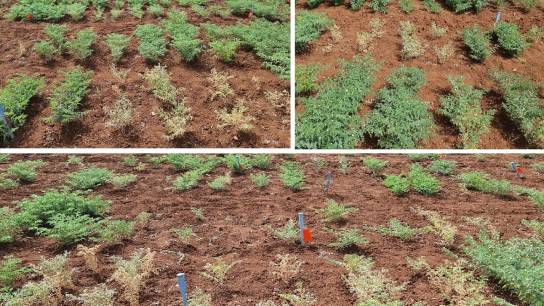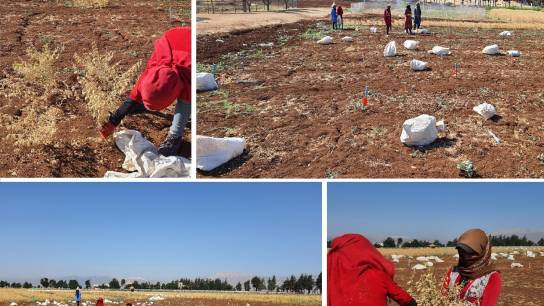
Chickpea and lentil field trial in Lebanon
Various field trials in different settings are an important part of the INCREASE research in improving agrobiodiversity of food legumes across Europe.
The INCREASE project partner ICARDA (International Center for Agricultural Research in the Dry Areas) in Lebanon is right in its first year of trialing chickpea and lentil. During the field trial the research team examines a wide range of different traits including agronomy, phenology and yield-related traits covering sowing date, number of seeds sown, days to emergence, number of emerged plants, days till plants have one open flower, ground colour of a standard petal, days to full flowering and days to the end of flowering, number of flowers and pods per peduncle, plant growth habit, days till plants have one pod, days till plants have 50% of their pods mature, lowest pod height, canopy height and width, days of full maturity, days till harvest, number of plants with pods per plot, number of seeds per pods and number of pods per plant, total seed mass, mass of 100 seeds, seed shape texture and colour, dot of seed coat, pod dehiscence, present diseases and stress susceptibility.
The trials are conducted during the growing seasons of 2022 and 2023. This first year of collecting the data is going according to plan with the collection of post-harvest traits still ongoing.
Of particular interest are also location specific characteristics. In the case of this trial in Lebanon the fungus Fusarium is being observed according to its local races available in the Middle East. Overall, Lebanon is an important location as it is part of the Fertile Crescent where both lentil and chickpea likely originated and were first domesticated.

Samples of 450 T-CORE lines with 2 replications planted on 30th of December 2021 at Terbol station field, Lebanon. Each line is planted in two rows with a total of 14 seed (7 seeds per row).







